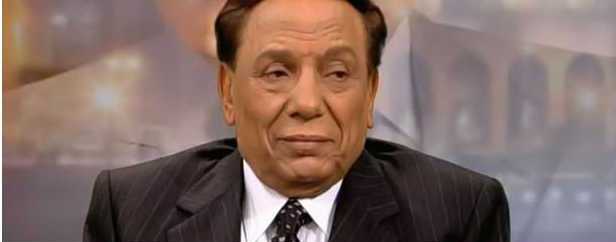A round up of the week's news including Ramadan TV programmingArabic Programme to Relocate From Egypt to MoroccoThe Arabic Overseas Flagship Program is relocating from Alexandria, Egypt to Meknes, having determined that restrictions in place to ensure students’ safety were undermining opportunities for informal language and cultural learning.
The unrest in Egypt looks set to continue for some time and with the fatal stabbing of an American college student in Alexandria the U.S. State Department has warned against non-essential travel to Egypt in light of the growing political and social unrest, prompting universities to reevaluate their study abroad programs there.
Dan Davidson, the president of the American Councils for International Education, which administers the program, said, “In recent days, it had become clear that in order to guarantee the safety of our students in Egypt, it had become necessary to establish curfews and limitations on their movements including escort and shuttle arrangements to and from classes at the university,. This means that the students were essentially having to give up many of the kinds of informal language contacts and cultural exploration that overseas immersion study is designed to provide,”
The program's Egyptian partner institution, Alexandria University, will be transferring some of its language teachers to Morocco to continue working with students.
The year long Arabic Overseas Flagship Program began in early June and involves 18 students from five U.S. universities. The Flagship language programs are funded by the U.S. Department of Defense’s National Security Education Program.
American Schools and Universities in Morocco to be LicensedThe Moroccan press is reporting that the Moroccan Prime Minister, Abdelilah Benkirane, is about to "tighten the screws" on American schools operating in Morocco.
Abdelilah Benkirane's government will finalise a Moroccan-American draft convention, that will lay out strict regulations on the operation in Morocco of schools and American universities.
The Ministry of Foreign Affairs and Cooperation will bring the draft convention forward for debate in government. Under the terms of the agreement, the Ministry would give licenses to American schools American universities with no religious curriculum, and that avoid Christian proselytizing activities even in a subliminal way.
American schools will also be required to provide compulsory courses on the languages, cultures and history of Morocco. To do this they will be required to employ Moroccan teachers authorized by the Moroccan Ministry of National Education, and subject to inspections.
The annual holiday schedule will not be defined by only American holidays, but must also include all Moroccan national and religious holidays.
A pure Arabic prayer room will be required in all institutions. According of the terms of this new draft Moroccan-American agreement, the tuition in these schools must be paid by the parents of Moroccan students in Dirhams and not Dollars.
There will also be strict guidelines about the teaching of Moroccan geography with a special requirement that the American institutions must use complete maps of Morocco and not ones with the area of Moroccan Sahara amputated. The comes at a time when there is pressure on both Google Maps and Facebook to correct their maps to include the Sahara. To this end there is also an
online petition.
![]() |
| A map of Morocco - "Correct and intact" |
The correction of maps is deemed very important for the defense, protection and respect of Morocco’s territorial integrity and complies with the article 38 of the constitution which states that “all citizens contribute to the defense of the country and its territorial integrity against any aggression or threat.”
The activists behind this cause, which was launched on June 29th, seek to attain 1,000,000 signatures. They also call on all Moroccan internet users to upload the official, correct and intact map of Morocco on all digital platforms on the internet so that it can become a reference in all major search engines.
Acts of bravery in Marrakech explosionsThis week a series of explosions occurred in Marrakech's Azli district when a truck loaded with butane gas canisters caught fire. Several sources have indicated that the truck driver and his helper were carrying dozens of gas tanks for distribution to retail merchants during a period of extremely high temperature.
They noticed their mirrors that a gas canisters was smoking and may have caught fire. The situation was very dangerous because a huge and deadly explosion could have taken place at any moment.
However, by mutual agreement, the driver and his mate decided to drive the truck as far as possible, to avoid the inhabited parts of Azli neighborhood. At the risk of their lives, the two men remained in the truck their until they reached an empty area. Just as they arrived in an open area the gas cylinders began to explode causing a huge "mushroom of fire". Fortunately the men were not injured and there were no other casualties.
Morocco cleans up its highwaysThe National Motorway Authority of Morocco (ADM) have announced that by 2015 all highways will be equipped with recycling platforms in 2015 (WMD). The first equipment for selective waste collection has already begun to be deployed.
On the outskirts of motorways and service areas, the amount of waste collected each year is 3,000 tons, said the ADM in a statement, noting that this amount includes several categories of recyclable waste, including bottles water, soda cans, paper and cardboard.
A trial by ADM was implemented in January 2013 with the building of an ecological platform for sorting and compaction of waste collected on the outskirts of the Rabat to Larache highway. The first results from this site showed a positive impact on waste management with the recycling of a significant part of the waste products.
Art Culture and Ramadan TVAs in previous years, the three main channels of Moroccan television have placed their bets on comedy to fill their programming of Ramadan.
Al Aoula's latest announcement includes three comedy series for the sacred month:
Rass Rass lmahyen starring Kamal Kadimi and Ilham Ouaziz,
Danya Hanya which tells "the story of four young roommates from different cultures starting their working lives in Casablanca", and
Hniya, M'barek and Messoud.
For his part, 2M announces the return with great fanfare a "dynamic duo" comic for the month of Ramadan. This is Khadija Assad and her husband Aziz Saadallah. Both actors will star in a new sitcom entitled
Dour biha chibani ago. Another couple will also be featured on the small screen through a series of 30 episodes of 3 minutes each. Hassan El Fad and Dounia Boutazout will interpret a "couple" like no other.
The
Bnat Lalla Mennana, an adaptation of the theatrical play
The House of Bernarda Alba by Federico Garcia Lorca, will return for a second season. With its success in 2012, the series will again take viewers in the heart of Chefchaouen and its famous little blue houses.
Médi1 TV offers Adil Imam, the 73 year old Egyptian actor, who plays the lead role of
Al Arraf series. He will be "accompanied by other Egyptian stars such as Hassan and Hussein Fahmi Houssni in the comic role of a crook and fugitive from justice in Egypt today."
![]() |
| Adil Imam |
Adil Imam said the new series, written by Youssef Maati and directed by Rami Imam again, belongs to the Comedy genre, where he plays the role of a sharper, who goes to jail but escapes following January revolution, and motivated by the chaotic situation the country falls in, he decides to run for presidency. Like all his previous works,
Al-Arraf is characterised by its sarcastic nature especially when highlighting corruption in the political system.
The Médil channel will also air a new season of
Lyam Deret. The Moroccan series is described as "a more intense dramatic intrigue and mysterious."
The political strife in Cairo has cause major problems for the production of Egyptian soaps. Dalal Hamza, a producer at the Egyptian Radio and Television Union, says the number of Ramadan TV series has fallen from 55 last year to 23 this season.
The total cost of production cost this year was 900 million Egyptian pounds ($128 million) while last year it reached close to $1.5 billion pounds ($213.6 million).
Production conditions "are surrounded by lots of problems, especially the general financial crisis and decline in advertising, as well as the security situation that hinders filming, which has prompted the industry to rely heavily on studio filming", she said.
Hamza said the costliest series this year is
Al-Arraf, with production costs soaring to 50 million pounds ($7.1 million).
Morocco will delay price rises until after Ramadan The shelving of planned deregulation of prices for some subsidized products until after Ramadan follows controversy over its announcement of the move before the Muslim fasting month when millions of Moroccans spend heavily.
The Moroccan government, under pressure from the International Monetary Fund, is seeking to cut back on subsidies that burned up 53.36 billion dirhams of public money in 2012 or 6.4 pct of Morocco's GDP.
But the reforms also mean pain for households used to subsidized oil, gas, sugar and other staple goods.
"We will launch the automatic price adjustment after Ramadan," Finance Minister Nizar Baraka told Reuters. "We will announce the exact day after the sacred month taking into consideration the commodity prices in the international markets."
General Affairs and Governance Minister Mohamed Najib Boulif said last week that the government would start automatic price adjustment within weeks for fuel - except cooking gas - and sugar.
The government expects the shift to cut spending on subsidies by 20 percent, to 42 billion dirhams ($5 billion) or less. That is within the limit fixed by the 2013 budget, which is based on an oil price of $105.
Boulif noted that if oil prices were lower than $105 then Moroccans would wind up paying less than if the subsidy scheme had been left in place.
"The adjustment will be in both directions. When (oil) prices are less than $105, that will let Moroccans consider that it is not necessarily a bad thing," he argued last week.
The government, however, may also set a different pricing regime of diesel fuel to protect the transportation sector and avoid a snowball effect on prices.
"We are considering how to set a different pricing regime for diesel used in the transport of people and goods, but it is in discussions and not yet decided," Transport Minister Abdelaziz Rebbah told Reuters earlier this week.
That may sharply reduce the savings for the government as the transport sector burns up around 65 percent of the national consumption of oil, according to ministry figures.
A junior party is threathening to quit the governing coalition unless Prime Minister Abdelilah Benkirane moderated plans for the sweeping cuts. Benkirane, backed by the IMF to the tune of $6.2 billion under a precautionary credit line agreed last year, insists the reforms will go ahead.
SHARE THIS!
![Print Friendly and PDF]()
























































.png)






.png)

